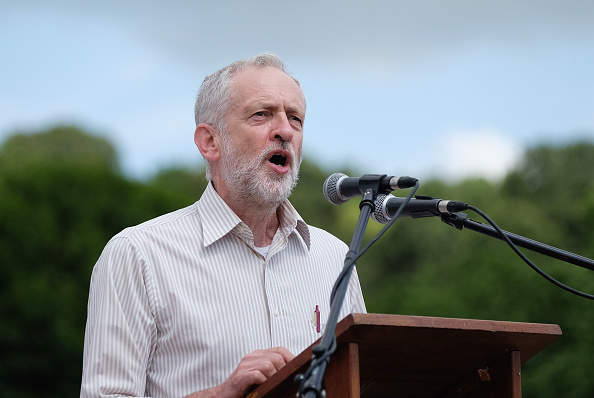
Private polling shows Jeremy Corbyn ahead in the first round of voting, a survey seen by the New Statesman has revealed.
The veteran leftwinger has surprised observers by collecting 40 nominations from local parties, just eight less than the bookmakers’ favourite, Andy Burnham. Yvette Cooper has 30. Liz Kendall is way back in fourth place with just five.
But the pattern of nominations actually underestimates Corbyn’s strength among the membership if two seperate polls are to be believed. The surveys, conducted on behalf of Corbyn’s opponents, are bleak news for Corbyn’s rivals.
If vote share and constituency nominations mirrored each other, Burnham would be ahead of the pack with 39 per cent, Corbyn would be second with 33 per cent, Cooper third with 25 per cent, and Kendall fourth with four per cent. However, it appears that Labour’s preferential voting system – used both for the final contest and to nominate by local parties – is masking Corbyn’s strength in the first round. One survey has Corbyn ahead by more than 15 points. Another puts him in what one campaign staffer called “a commanding position…he is on course to win”.
It appears as if the Islington North MP’s strength is largely coming from new and younger members. One CLP chair believes that “more than two thirds” of new recruits since the election are supporters of Corbyn, a finding mirrored by the leadership campaigns’ experience of phoning new members. It also appears as if many members from the party’s right have abandoned the party during the years of Ed Miliband, being replaced by what one staffer describes as “true believers”.
There is now a conversation about what can be done to prevent a Corbyn victory. Some senior Labour MPs believe that respected grandees from the Miliband era and the party’s “soft left” must come out against a Corbyn victory to prevent the worst happening. But given the hostile response to Harriet Harman’s coded warning to “think not who you like and who makes you feel comfortable – think who actually will be able to reach out to the public and actually listen to the public and give them confidence”, interpreted as an “anyone but Corbyn” call, that may prove ineffective.
Update 15/07/2015 17:50:
The Burnham campaign has been in touch. They say that they are unaware of any such polling and that the findings don’t stack with their phonebank data. They believe they have a chance of winning in the first round and will soon have amassed the support of 50 CLPs.
Update 15/07/2015 18:04
Toby Perkins, Liz Kendall’s campaign manager, has released a statement: “These reports suggest Labour members realise that carrying on with a continuity leader will result in another defeat – the question is what kind of change Labour will embrace.” “Voters in Labour’s leadership contest face straight choice between changing to win with Liz Kendall or marching into a 1980s-style wilderness with Jeremy Corbyn. We are confident that the majority of members will want to put their values into practice with a Labour government not continue as a party of protest.”
Update 15/07/2015 21:01
Statement from Team Cooper:
“This does not reflect data gathered by our campaign team, which shows Yvette has strong support across all nations and regions. The response to Yvette’s message that we must reach out and connect with voters in all corners of the country has been extremely positive and has resonated with party members, who want Labour to win again in 2020. Conflating CLP nomination numbers and unseen private polling – briefed by individual camps – might be good for something. What it clearly isn’t is any sort of meaningful indicator of what the outcome of this election will be.”





